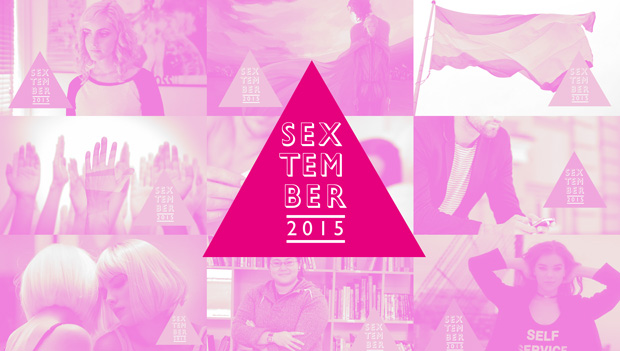The SEXtember Wrap-up: What you may have missed
MISSED out on some of the big stories of SEXtember? We’ve collected all the best stories for you right here! Thanks to everyone who contributed and read our pieces along the way!
At the beginning of this year’s SEXtember campaign, Meld Magazine saw a need to talk more openly about issues that concerned international students in the LGBTIQ community.
Unsurprisingly, we found that some international students were either reluctant to talk about their sexuality or disclose such sensitive information in a public forum.
As stories were formed and the more these issues were discussed, without intending to, it quickly became apparent that there was something of a running theme within our primary aim.
This year’s SEXtember campaign saw a series of stories that predominately discussed the various avenues in which students and young people generally discovered or engaged with sex, sexuality and identity.
For many international students who come from strict familial upbringings or culturally conservative countries, formal sexual education is either flimsily taught or not brought up at all. Issues concerning LGBTIQ communities, in most cases, might not even be acknowledged at all.
While formal sexual education and safety was still very important to know, for international students, it was obvious that they were more than likely to learn about sex and sexuality in the media they consume, from their peers or simply by being alone in a foreign country, away from the watchful eye of their parents or guardians.
Furthermore, traditional entertainment avenues such as literature, film, music or gaming, are still considered early platforms for international students and young people to become more acutely aware, comfortable and understanding of other forms of sex and sexuality. These avenues would already have been born out of students’ hobbies and interests.
So what are international students taking away from these alternate avenues of sex education and what ideas are worth communicating to young people in order to make them feel more empowered or accepting of their burgeoning sexuality?
Natalie Ng‘s series of stories highlighting the importance of proper representation and storytelling of LGBTIQ youth across film, music and literature demonstrated the responsibility that creative thinkers and artists everywhere had in making young people feel more comfortable in their own skin.
Deborah Goh meanwhile caught up with American games developer, Nina Freeman, to talk about her game Cibele, a sensitively designed independent title that puts gamers in the shoes of a 19-year old Freeman as she meets up with a boy she encounters online and has her first sexual experience.
Diana Ponce looked at how international students are using dating apps like Tinder and Grindr to explore their sexual options in a country and culture that’s entirely new to them.
And Lya Susanto‘s music playlist, which beckons women to embrace and explore their sexuality, is a reminder that women are as equally active as men are in sex and deserve just as much attention themselves.
As for the wider pool of LGBTIQ stories that Meld Magazine has produced this year, we’ve seen exceptional stories of queer advocacy within student groups and universities as well as students talking about their general experience as LGBTIQ international students.
Trinh Le‘s profile of RMIT’s Queer Department showed the power of love and acceptance within student communities.
Dea Putra‘s interview with a transgender international student confronted the reality of being a transgender international student and the common misconceptions people generally have about transgender people.
And, Amber Ziye Wang looked at what universities are doing to better ensure the welfare of LGBTIQ students and interviewed two gay international students – one from China, the other from the United States – to get their perspectives on the coming out experience in their respective cultures.
Finally, we’d like to thank Dr. Georgia Babatskos and her student helper Max Zhu for contributing their comprehensive catch-all guide for international students about the use of contraception.
We’d also like to thank Victorian Aids Council’s Budi Sudarto for his support of LGBTIQ international students and for helping to open up a space for them to be comfortable and talk about issues that matter to them, as well as Red Aware for their continuing support for Meld Magazine’s SEXtember campaign.
It has been a fulfilling month for our team as we tackled these topics with an open mind and we hope these important conversations around sex, sexuality and identity will continue long after the SEXtember campaign has come to an end.
For LGBTIQ international students looking for a safe space, we encourage you to get in touch with the Study Melbourne Student Centre, a discrimination-free zone, where you can inquire about their safe space for LGBTIQ international students.


